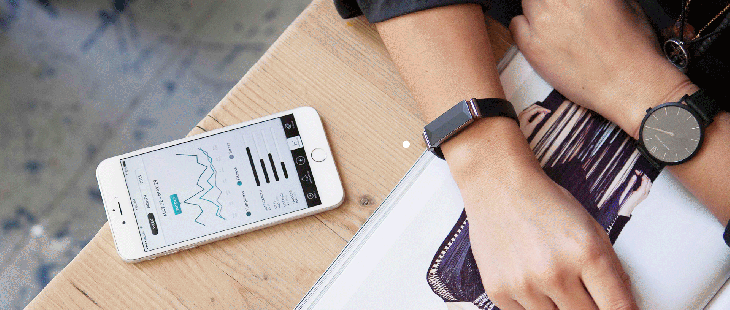Physical wellbeing has been the focus of most wearables to date. Products such as the Apple Watch, Microsoft Band, FitBit and Jawbone all track things like movement, heartbeat etc. At the same time some startups are appearing which try to track mental states. But these are usually head bands which make you like an updated 21st Century Hippie.
The new ZENTA wrist-wearable takes a different approach. Created by VINAYA, a London-based technology design house, the Zenta goes down this mental wellness path.
Vinaya previously came up with a jewelry piece called the Altrius which embedded notifications in a pendant or ring. They’re taking this learning into the new product and recently launched the Zenta on Indiegogo, passing the $100,000 target by over $90,000.
Vinaya claims the Zenta is the first wearable to not only monitor your physical wellbeing, but also incorporate the added dimension of mental wellbeing.
Zenta monitors physical health, such as your heart rate, but also perspiration, respiration and temperature and cross-references this data against other data from your smartphone in order to understand cause and effect. Thus, it’s trying to create a pattern about indicators for mental health such as stress levels.
Kate Unsworth, Founder and CEO told TechCrunch: “The complexities of human emotions have been explored by technologists for decades. The concept of using technology to monitor things like stress and happiness isn’t new, however it’s only very recently become feasible in an ‘out-of-Lab’, real life capacity. We now have the sensor technology and the power capabilities required to actually begin to track this stuff day-to-day, using a device that’s actually wearable.” She’s positioning the company to, as she puts it “own this space.”
Vinaya says it has a lab consisting of neuroscientists, psychologists, and digital anthropologists who aim to “decipher how every single human emotion can be plotted in 3-dimensional space, where the coordinates are collected passively from the user’s biometrics or smartphone data.”
The Vinaya Platform uses machine learning algorithms to build up personalized profiles of their users over time as a result of their behavioural patterns. The team say they are in the process of building an Artificial Intelligence layer on top of this which could end up doing things like scheduling a break in between meetings when the user’s biometrics indicate lack of productivity as a result of stress.
Competitor Ringly – a smart ring – is also going after this market but remains in the notifications space which Vinaya is moving away from.
